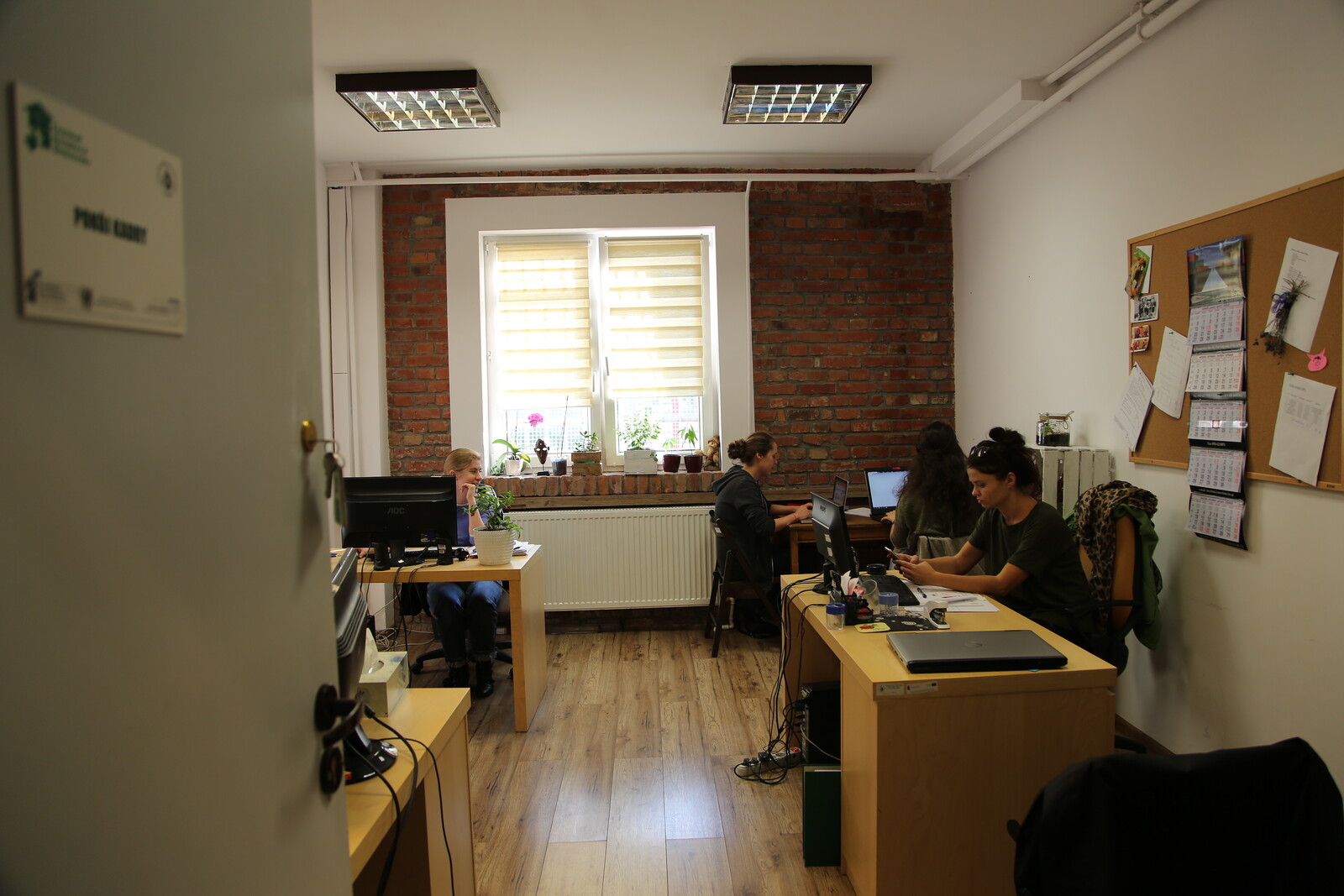Long term residency project
November 1, 2016–October 31, 2018
Joshua Schwebel: Evictions
Curator: Aleksandra Księżopolska
Research visits November 2016–October 2018 / Project realization September 1–30, 2018
Joshua Schwebel’s artistic method is based on tactical interventions that reveal the inconsistencies between contemporary art’s claims and the political consequences of its practices. His latest project, Evictions, like several of his previous works, is a direct response to the structural and political conditions of the arts organization that has hosted him. It is at the same time based on Schwebel’s genuine concern for the people involved, both working within the institution, and those in its proximity.
Evictions was realized in the context of Laznia CCA’s long-term residency program thematised around art in public space. The Artists in Residency space is located in Nowy Port: a neglected, working class neighbourhood of Gdansk, which has been in the process of revitalisation since 2013. Laznia contemporary art centre’s placement in this district is a major element of the city’s revitalisation project.
Researched over a number of study visits to Gdansk, Schwebel’s observations focused on three main components: poor dialogue among local actors in the neighbourhood, low interest from the local community in contemporary art initiatives, and the role of art in gentrification processes. Schwebel recognized that through the presence of the newly renovated arts centre, and himself as an imported member of the creative class, he was inherently implicated in the gentrification underway. The project he undertook attempted to open up avenues for considering the role of contemporary artists and the arts centre in the transformation of the neighbourhood, and for resisting the instrumentalization of contemporary art in the gentrification process.
His proposal was to undertake a three-way exchange of office spaces between Laznia and two other local organisations, a proposal which was accepted by the director of the institution, the administrators and curators who worked in the Laznia building, and the coordinators and staff of the other organizations. The exchange took place over the full month of September 2018. Laznia’s employees moved out of their offices to work at desks in a social services centre (CIS) within walking distance. CIS: the Centre for Integration, an organization that supports impoverished and at-risk clients, offered Laznia’s employees unoccupied desks in their workspace. The vacated office spaces within Laznia were occupied by Youth 180°, a grassroots group that works with local youth, temporarily re-signifying the building, and bringing their clients into the arts centre who would otherwise not enter.
The project created circumstances for lateral links to form amongst these local organizations, for skills, resources, and information to be shared, and for the employees at Laznia CCA to be more deeply embedded in the issues and struggles of the district. Reconfigurations and discussions have stretched over the project’s timeframe and the artist’s influence.
Evictions opened up space to discuss the instrumentalization of contemporary art activities in gentrification, and imagines strategies to resist or reverse these processes from within the art institution. The project triggered a process of critical reflection and dialogue amongst the actors working in the institution itself, proposing productive counter-models for those embedded in a politically compromising situation.
Joshua Schwebel is a Canadian conceptual artist currently based in Berlin. Through artistic interventions that implicate the administrative, political, or financial conditions of art, his work decenters institutional authority and makes visible power structures and hierarchies residing in the art system.
Laznia CCA is one of the public cultural institutions in Poland established after 1989. It was set up by local independent artists who opposed the traditional models of art. It celebrates its 20th anniversary in 2018
Evictions project was realised in the frames of Artecitya. Envisioning the City of Tomorrow (2014–18) project financed through the Creative Europe 2014–2020 program. Artecitya is a platform of collaboration for 9 European partners whose activities focus on the analysis of the challenges of the contemporary cities and its dwellers.



